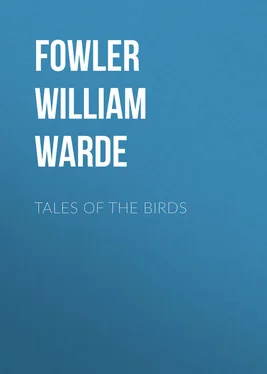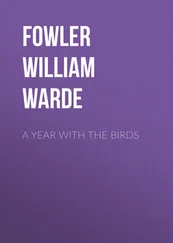William Fowler - Tales of the birds
Здесь есть возможность читать онлайн «William Fowler - Tales of the birds» — ознакомительный отрывок электронной книги совершенно бесплатно, а после прочтения отрывка купить полную версию. В некоторых случаях можно слушать аудио, скачать через торрент в формате fb2 и присутствует краткое содержание. Жанр: foreign_antique, foreign_prose, на английском языке. Описание произведения, (предисловие) а так же отзывы посетителей доступны на портале библиотеки ЛибКат.
- Название:Tales of the birds
- Автор:
- Жанр:
- Год:неизвестен
- ISBN:нет данных
- Рейтинг книги:3 / 5. Голосов: 1
-
Избранное:Добавить в избранное
- Отзывы:
-
Ваша оценка:
- 60
- 1
- 2
- 3
- 4
- 5
Tales of the birds: краткое содержание, описание и аннотация
Предлагаем к чтению аннотацию, описание, краткое содержание или предисловие (зависит от того, что написал сам автор книги «Tales of the birds»). Если вы не нашли необходимую информацию о книге — напишите в комментариях, мы постараемся отыскать её.
Tales of the birds — читать онлайн ознакомительный отрывок
Ниже представлен текст книги, разбитый по страницам. Система сохранения места последней прочитанной страницы, позволяет с удобством читать онлайн бесплатно книгу «Tales of the birds», без необходимости каждый раз заново искать на чём Вы остановились. Поставьте закладку, и сможете в любой момент перейти на страницу, на которой закончили чтение.
Интервал:
Закладка:
He went softly into the front room, keeping out of sight from the window. He was seized with a desire to wreak vengeance on this tormentor, but he was not quite clear how to do it, and must survey his ground first. Stepping behind the window-curtain, he peeped out between the curtain and the window-frame, and saw a small boy, whistling hard, with a long string in his hand, which descended into the area below. The musician stood on tiptoe, and looked down into the area; it was a sort of relief to him to see what this urchin was about. At the end of the string he perceived a dead mouse, which was being made to jump up and down and counterfeit life, as well as was possible under the circumstances, for the benefit of a young cat of the household, who was lying in wait for it, springing on it, and each time finding it drawn away from her just as she thought her claws were fast fixed in it. This boy was in fact an original genius, who had invented this way of amusing himself; he called it cat-fishing, and it was excellent sport.
The musician suddenly flung up the window, and faced the boy, who seemed by no means disconcerted; he only left off whistling and looked hard at the musician.
“What are you doing with the cat?” said the latter, with all the dignity he could put on. “What business have you to meddle with my cat, and make that infernal din in front of my house?”
The boy began slowly to haul up the string, looking all the while steadily at the composer.
“I say, guv’nor,” he said, with a mock show of friendly interest, “do you know as you’ve got a blob of ink at the end o’ your nose?”
The composer was taken aback. He certainly did not know it, but nothing was more likely, considering how he had been pulling his moustache and scratching his head with fingers which, as he glanced at them, showed some traces of ink. He put his hand involuntarily to his nose, and half turned to the glass over the chimney-piece. There was not a stain there: the nose was innocent of ink. Instantly he returned to the window, but the boy was gone; all that was left of him was a distant sound of “There’s nae luck aboot the house” far down the street. The composer went gloomily back to his study, without a particle of music in his brain; the canary and the whistler had driven it all away. He sat down mechanically at his desk, but he might as well have sat down at the kitchen-table and tried to make it play like a piano.
He got up once more, and looked out of the window. The sun was again shining, and the little garden, fenced in between brick walls which caught the sunshine, and enlivened with a few annuals (for it was early summer), did not look altogether uninviting. At the end of it was a little arbour which he had built himself, and a rose tree that he had planted against it was already beginning to blossom. The composer thought he would go and quiet himself down in this little arbour, and try and get his thoughts fixed upon the air he was to write. Out he went, and seated there, began to feel more at ease. After a while he began to think once more of the old poet’s lines; and feeling as if music were coming into his brain again, went and fetched his manuscript and his pen and ink, to be ready in case he should have musical thoughts to write down.
Suddenly there broke in upon his peace the loud, shrill song of a wren. It was close to him, just outside the arbour; and when a wren sings close to you, it pierces your ears like the shrillest whistle ever blown by schoolboy. It was all unconscious of the presence of the composer so close to its nest, which it had built in the branches of the rose-tree that climbed up outside; and it hopped down for a moment on the gravel just in front of the arbour to pick up some fragment of food. The composer’s nerves were quite unstrung by its sudden outburst of self-asserting song; it was an insult to music, to the poet, and to himself. No sooner did the tiny bird appear, as complacent and hearty as all wrens are, than he seized the ink-bottle, and like Luther at Wittemburg, flung it wildly at the little fiend that thus dared to disturb his peace. Of course he missed his aim; of course he broke the ink-bottle and spilt the ink; and alas! when he returned from picking up the bits, a splash from the bottle had fallen in a grand slanting puddle over the neat manuscript of the last page of the chorus which concluded his second part. And as he stood beholding it in dismay, lo! the voice of that irrepressible little wren, as shrill and pert as ever, only a little further off!
If the musician had not quarrelled with his brain, and if the struggle between them had not put his nerves all out of tune – if he had been then the gentle and sweet-tempered artist he generally was – he would have laughed at the idea of such a little pigmy flouting him in this ridiculous way. As it was, he growled under his breath that everything was against him, crushed his hat on his head, took the manuscript into the house and locked it up in a drawer, wrote a hurried note to his wife, who had gone put, to say he had gone for a long walk and would not be back till late, and sallied out of the house where no peace was any longer possible for him.
He walked fast, and was soon out of the town and among the lanes. They were decked with the full bloom of the wild roses, and the meadows were golden with buttercups; but these the composer did not even see. Birds sang everywhere, but he did not hear them. He was just conscious that the sun was shining on him, but his eyes were fixed on the ground, and his mind was so full of his own troubles that there was no room in it for anything nicer to enter there. He was thinking that his song would never be written, for he could not bear to write anything that should be unworthy of those words, or second-rate as music; and it seemed as if his brain would never again yield him any music that he could be satisfied with. “I shall be behindhand,” he thought to himself. “I shall have to write and say I can’t carry out my undertaking; my one chance will be lost, and all my hopes with it. I shall lose my reputation and my pupils, and then there will be nothing left but beggary and a blighted life!” And he worked himself up into such a dreadful state that when he was crossing a river by a bridge, it did actually occur to him whether it would not be as well to jump over the parapet and put an end to his troubles once for all. His mind was so full of himself that for a moment he forgot even his wife and child, and all his friends and well-wishers.
He stood by the parapet for some minutes looking over. The swallows and sand-martins were gliding up and down, backwards and forwards through the bridge, catching their food and talking to themselves. A big trout rose to secure a mayfly from the deep pool below, and sent a circle of wavelets spreading far and wide. A kingfisher flashed under the bridge, all blue and green, and shot away noiselessly up the stream; and then a red cow or two came down to drink, and after drinking stood in the water up to their knees, and looked sublimely cool and comfortable. And the river itself flowed on with a gentle rippling talk in the sunshine, hushing as it entered the deep pool, and passing under the bridge slowly and almost silently – “like an andante passing into an adagio ,” said the musician to himself; and he walked on with eyes no longer fixed on the ground, for even this little glimpse of beauty from the bridge had been medicine to the brain, and it wanted more – it wanted to see and to hear more things that were beautiful and healing.
He went on, still gloomy, but his gloom was no longer an angry and sullen one. Through his eyes and ears came sensations that gradually gladdened his heart, and relieved the oppression on his brain: he began to notice the bloom on the hedges and in the fields; and the singing of the larks high in air, though he hardly attended to it, made part of the joyousness of nature which was beginning to steal into his weary being. Presently he came to a little hamlet, hardly more than a cottage or two, but with a little church standing at right angles to the road. The churchyard looked inviting, for rose-bushes were blooming among the graves, and it was shut out from the road by a high wall, so that he would be unobserved there. He walked in and sat down on a tombstone to rest.
Читать дальшеИнтервал:
Закладка:
Похожие книги на «Tales of the birds»
Представляем Вашему вниманию похожие книги на «Tales of the birds» списком для выбора. Мы отобрали схожую по названию и смыслу литературу в надежде предоставить читателям больше вариантов отыскать новые, интересные, ещё непрочитанные произведения.
Обсуждение, отзывы о книге «Tales of the birds» и просто собственные мнения читателей. Оставьте ваши комментарии, напишите, что Вы думаете о произведении, его смысле или главных героях. Укажите что конкретно понравилось, а что нет, и почему Вы так считаете.












